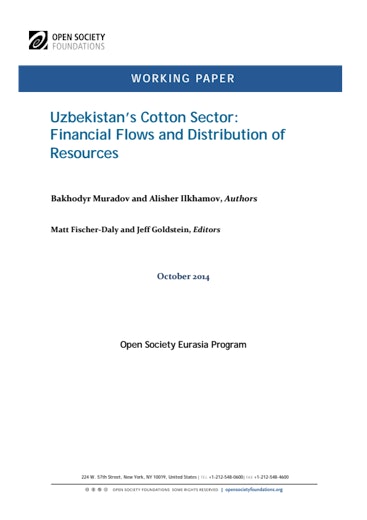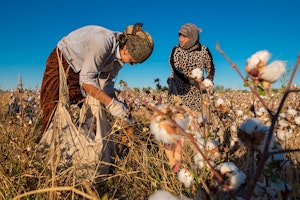Every year, the government in Uzbekistan forces up to a million of its own citizens to pick cotton without pay. Uzbekistan’s cotton industry is crippling the economy, degrading the environment, and creating tensions between Uzbekistan and its neighbors. Given these problems, why does the government of Uzbekistan persist with this abusive and antiquated system? In the context of the hyper-authoritarian system of government in Uzbekistan there are two answers: because the government can and because it profits handsomely from doing so.
In order to challenge forced labor in Uzbekistan, advocates and policymakers need a deeper understanding of how the cotton industry works. A new report produced by the Open Society Foundations contributes to this understanding and offers tools and analysis that can help in the planning and financing of major reforms. Uzbekistan’s Cotton Sector: Financial Flows and Distribution of Resources provides new insights into how a small circle surrounding President Islam Karimov’s government realizes huge profits by ignoring human rights and keeping a centralized business alive.
The paper uses data and analysis about the costs of the cotton production system to produce recommendations for allowing farmers and markets to work. This includes strategies for de-monopolizing agricultural service industries such as seed and fertilizer suppliers and cotton gins.
Download
-
Uzbekistan’s Cotton Sector: Financial Flows and Distribution of Resources (1.78 Mb pdf file)
Download the complete 66-page report.

